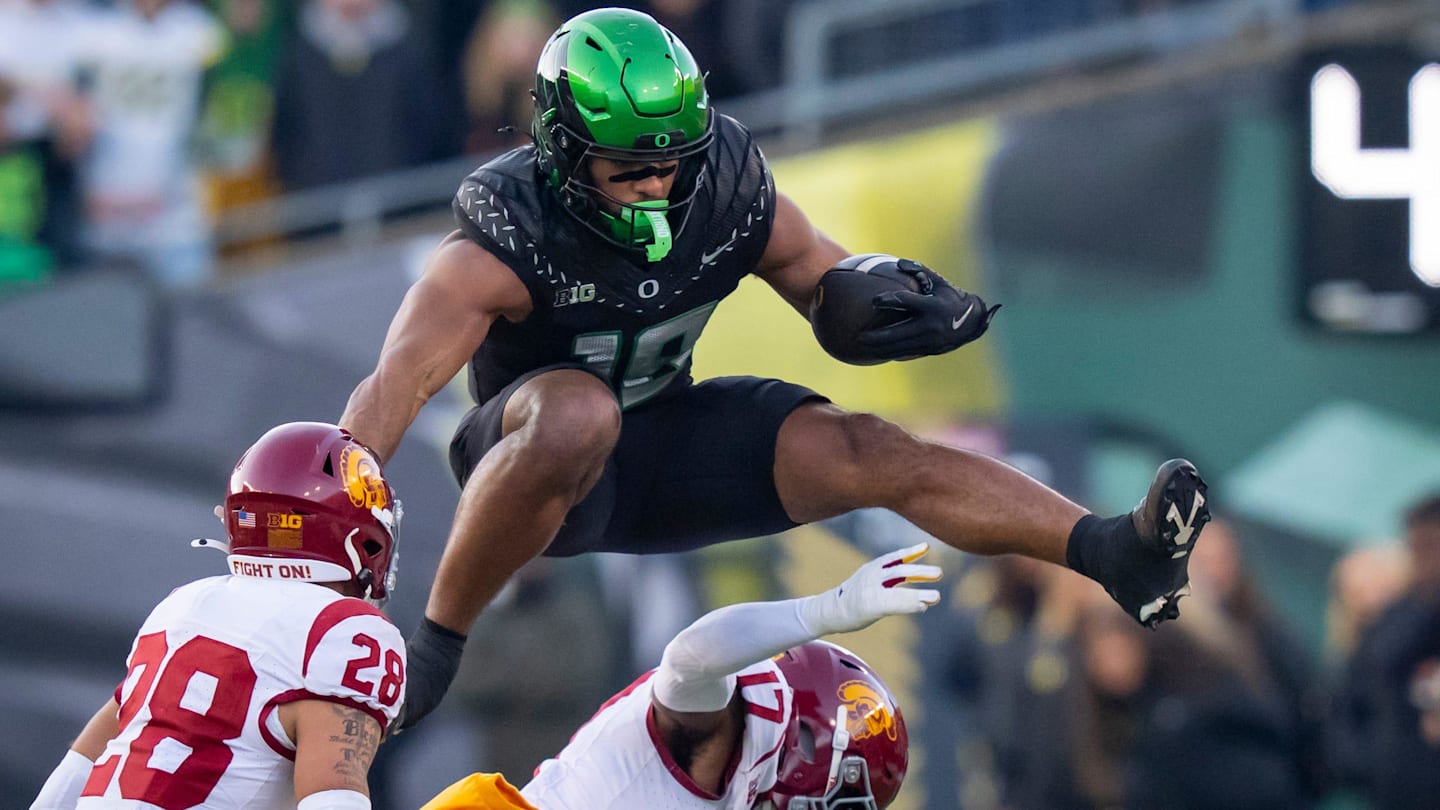Tar Heels Seal Historic Win Over Kansas in Chapel Hill

Historic Win for Tar Heels
The North Carolina Tar Heels made history with an 87-74 victory over the Kansas Jayhawks, marking their first win against Kansas in 23 years. The game, played in Chapel Hill, saw the Tar Heels overcome an early deficit and dominate the second half, showcasing their depth and resilience against a ranked opponent.
Second Half Surge
North Carolina's second half push was the difference maker, as they outscored Kansas with a balanced attack. Freshman Caleb Wilson led the charge with 24 points, while Henri Veesaar added 20 and Seth Trimble contributed 17 points and 8 rebounds. Their collective effort overwhelmed the Jayhawks, who struggled to penetrate the Tar Heels' defense.
Impact and Implications
This win not only boosts North Carolina's early season momentum but also signals their potential as a national contender. The Tar Heels' ability to rally and execute under pressure sets a strong tone for the rest of their campaign.
About the People Mentioned
Caleb Wilson
Caleb Wilson is an American college basketball player, a 6-foot-9 forward who plays for the University of North Carolina Tar Heels and is widely regarded as one of the top freshmen in the 2025 class. He was a five-star recruit from Holy Innocents’ Episcopal School in Atlanta, where he led his team to the 2025 private-school state title and earned major national honors including Georgia Gatorade Player of the Year and semifinalist recognition for the Naismith Trophy[3][2]. At Holy Innocents, Wilson compiled standout all-around statistics—roughly 21.7 points, 11.1 rebounds, 5.0 assists, 3.6 blocks and 2.1 steals per game as a senior—and finished his prep career with more than 1,800 points and 1,100 rebounds, appearances in elite All-American events (McDonald’s All-American, Jordan Brand Classic), and EYBL play on the grassroots circuit[3][2]. Recruiting services rated him a five-star prospect with positional length (listed around 6'9" with about a 7-foot wingspan) and two-way upside, which contributed to his high-profile arrival at UNC[8][7]. Since joining North Carolina, Wilson has drawn media attention for his confident personality, endorsement activity, and immediate on-court impact as a freshman, with highlights and game clips regularly featured by major sports outlets[4][6]. Reports note he signed an endorsement deal with New Balance before his collegiate debut and that coaches have praised both his competitive drive and off-court interests[4]. Game logs and highlight reels show early contributions in scoring, rebounding and rim play for the Tar Heels during the 2025–26 season[6][7]. Wilson’s current relevance stems from his status as a high-profile freshman on a storied program, his rapid rise from Georgia prep star to Power Five contributor, and ongoing national coverage that tracks his development and potential future as a professional prospect[3][6][8].
Henri Veesaar
Henri Veesaar is an Estonian collegiate basketball player who plays center for the North Carolina Tar Heels. He was born on March 28, 2004, in Tallinn, Estonia, and developed in Real Madrid’s youth program before moving to U.S. college basketball with Arizona and later transferring to North Carolina[1][3]. At Real Madrid’s youth setup Veesaar spent three seasons and showed significant production in international youth competition, including averaging 16.2 points, 11.6 rebounds and 3.8 blocks in FIBA’s U18 European Challenger in 2021[1][2]. He debuted with the Estonian senior national team at 17 years old, becoming the youngest Estonian to appear in a FIBA qualifier when he played against Iceland in July 2021[2][3]. Veesaar joined Arizona in 2022; across his Arizona tenure he progressively increased his role, redshirting one season after injury and then emerging as a reliable frontcourt contributor who can score inside, rebound and protect the rim[2][3]. In his final Arizona season he averaged roughly 9.4 points per game, posted multiple double-figure scoring games (including a 22-point performance against Arizona State), and demonstrated interior defense with multiple games of multi-block efforts[1][2]. A 7'0" (approx.) stretch big with developing perimeter range and mobility, Veesaar draws scouting interest for his combination of size, ball-handling for a big, and shotmaking potential—traits noted in scouting reports projecting him as a pick-and-pop/roll threat at the next level[5][6][7]. His college transfer to North Carolina places him in the Atlantic Coast Conference and increases his visibility for professional scouts[1][4]. Key recent relevance: Veesaar is an active college junior at North Carolina, coming off productive seasons at Arizona and carrying experience with European youth programs and Estonia’s national team into his role with the Tar Heels[1][3][4].
Seth Trimble
Seth Trimble is an American collegiate basketball guard who plays for the University of North Carolina Tar Heels in the Atlantic Coast Conference (ACC).[2] He is a 6-foot-3 guard from Menomonee Falls, Wisconsin, who starred at Menomonee Falls High School and was named Wisconsin Mr. Basketball as a senior.[2] Trimble joined UNC as a recruit noted for his scoring and defensive ability and saw limited minutes as a freshman before becoming the Tar Heels’ primary backcourt reserve as a sophomore.[2] He has been recognized for on-ball defense, lateral quickness, and physicality while contributing as a scorer off the bench and in starting roles at times; by the end of his recent season he was averaging double-figure scoring and drew attention as an important veteran presence in the rotation.[1][7] Trimble played for the United States U18 team that won gold at the 2022 FIBA Under-18 Americas Championship, representing a notable early-career achievement on the international stage.[2] Following his sophomore season he briefly entered the NCAA transfer portal but ultimately withdrew and returned to North Carolina for his junior year.[2] Beyond on-court accomplishments, Trimble has attracted local media interest for business activity off campus, including reports that he became a Ben & Jerry’s franchise owner while at UNC.[3] As of the most recent collegiate seasons, he remains draft-eligible in future NBA cycles and is listed on scouting and player-profile sites tracking his statistics, game logs, and professional prospects.[4][5]
About the Organizations Mentioned
North Carolina Tar Heels
The **North Carolina Tar Heels** represent the University of North Carolina at Chapel Hill (UNC) in collegiate athletics, most notably in football as part of the NCAA Division I Football Bowl Subdivision and as members of the Atlantic Coast Conference (ACC)[1]. The Tar Heels are a storied organization with a rich history dating back to the 19th century, including pioneering early uses of the forward pass in 1895, well before its official legalization[1]. Their football program has won multiple conference championships—three Southern Conference and five ACC titles, with the most recent ACC championship in 1980[1]. Over the years, they have produced numerous NFL players such as Lawrence Taylor, Julius Peppers, and Mitch Trubisky, underscoring their legacy in developing professional talent[1]. Beyond football, the Tar Heels embody a culture of **innovation, service, and excellence**, driven by a philosophy known as RISE, which fosters collaboration across all sports teams to avoid fragmentation and elevate the entire athletics department[2]. This disciplined and creative approach challenges the status quo and seeks continuous improvement, reflecting a business-like model of organizational cohesion and strategic development[2]. The Tar Heels’ impact extends off the field through charitable endeavors like the North Carolina Hall of Fame (NCHOF), a 501(c)(3) organization established to honor past, present, and future student-athletes while supporting community engagement and leveraging Name, Image, and Likeness (NIL) opportunities[3]. This initiative strengthens ties between athletes and the local community, blending sports heritage with modern business and social responsibility practices. UNC’s broader culture, known as the Tar Heel experience, integrates athletics with academics, community service, and student life, fostering lifelong connections among alumni and residents of Chapel Hill[4]. The athletics program continuously adapts to new technologies and trends, such as sideline iPads and evolving NCAA tournament selection processes, reflecting a commitment to modernization and competitive excellence[
Kansas Jayhawks
The **Kansas Jayhawks** primarily refer to the athletic teams representing the University of Kansas (KU), with the men's basketball program being the most iconic and historically significant. The Jayhawks basketball team competes in NCAA Division I as part of the Big 12 Conference and is recognized as one of North America’s most prestigious collegiate basketball programs. It boasts six national championships (four NCAA Tournament titles and two Helms National Championships), numerous conference titles, and holds the NCAA record for the most consecutive NCAA Tournament appearances at 28. The program is also notable for having the longest streak in AP poll history, ranked for 231 consecutive polls over 12 years[1][7][8]. Beyond athletics, the Kansas Jayhawks symbolize the broader University of Kansas community, which is a top-tier research and teaching institution founded in 1866. KU emphasizes creativity, determination, and innovation, reflected in its extensive academic offerings—over 400 degree majors—and a robust research ecosystem that drives economic development in Kansas and beyond. The university has a significant global reach with multiple campuses and is a major contributor to the state economy, creating thousands of jobs and fostering innovation, as evidenced by its high ranking on the National Inventors Institute's list for utility model patents[2][4][5]. The Jayhawk identity extends into a powerful global alumni network of over 400,000 members who lead in fields such as business, engineering, journalism, and education. This network supports students and alumni through events, career services, and strategic partnerships, further amplifying KU’s influence in business and technology sectors worldwide[3]. Notably, the Jayhawks' blend of historic sports excellence and a forward-looking academic and research mission makes them a unique organization. Their commitment to innovation is visible in state-of-the-art athletic facilities and branding, designed to inspire recruits and maintain their competitive edge[6]. The Jayhawks represent a dynamic fusion of tradition and progress, impacting sports, education, and technology.

















